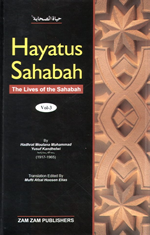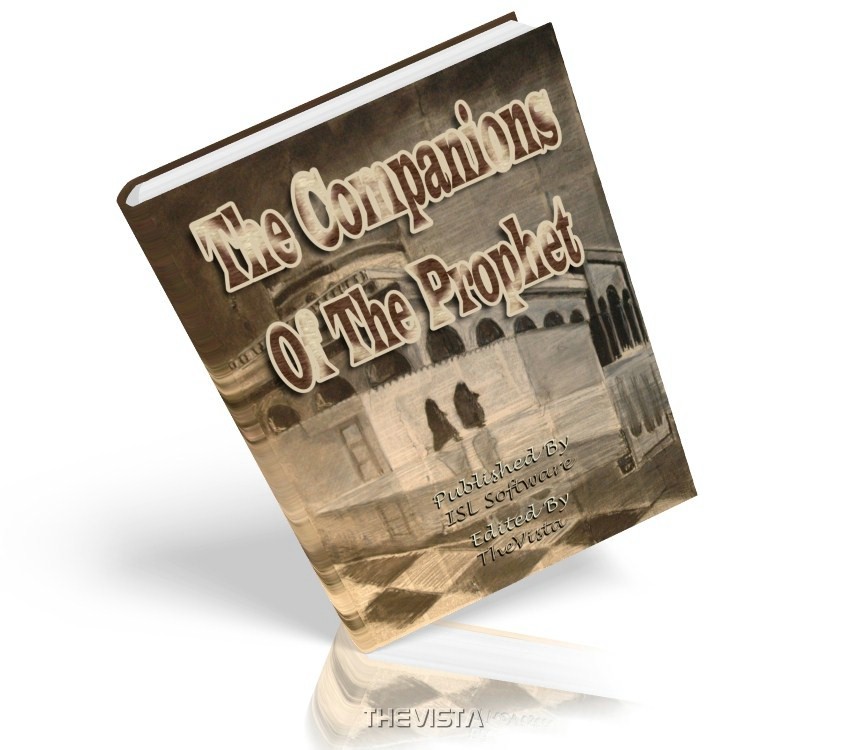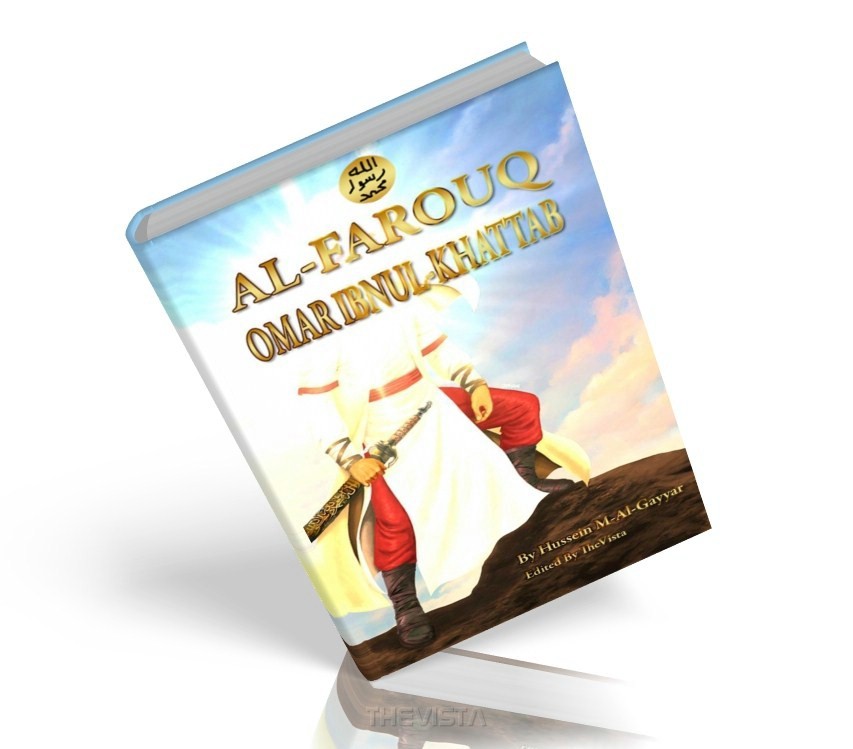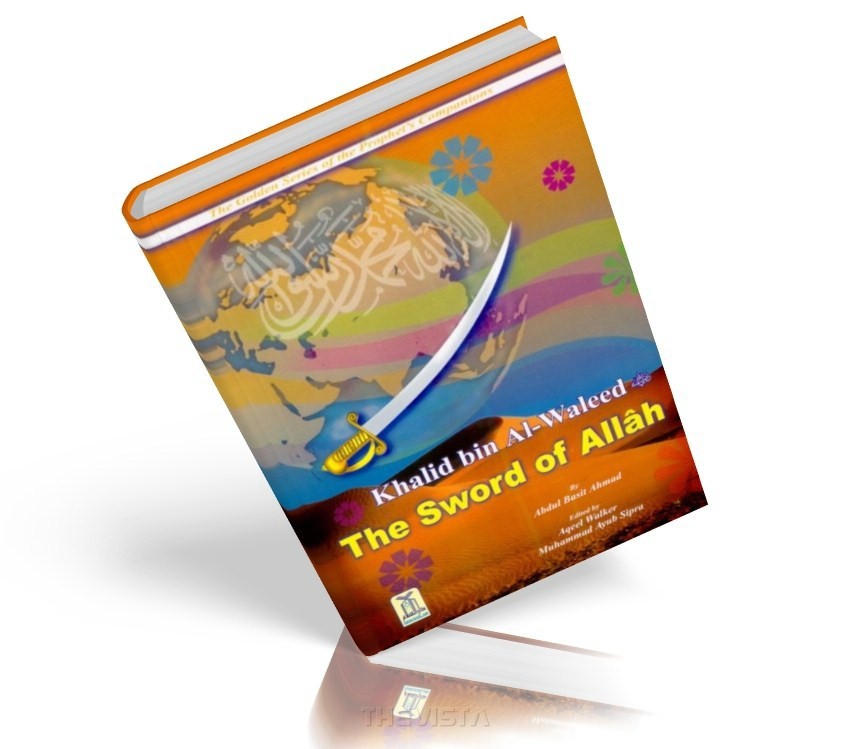|
|
WorldOfIslam.info | Islamic Ebooks The Companions / Sahabah, download your ebooks for free
New Page 1
|
/
(10)
/ (1) /
(17)
/
(31)
/ (4) /
(3) /
(3)
/ (2) /
(15) /
(5) /
(8)
/ (3)
/ (18) / (2)
/ (2)
/ (8)
/ (1) /
(13)
/ (10)
/ (13)
/ (3)
/ (7)
/ (2)
/ (2)
/ (4)
/ (3)
/ (39) / (3)
/ (7)
/ (1)
/ (8)
/ (2) /
(3) /
(5) /
(6) /
(13) /
(7) /
(8) /
(8) /
(2) /
(51) /
(15) /
(4) |
Hayat-us-Sahaba: Lives of the Sahabah

Author:
Muhammad Yusuf Khandalwi |
Language:
English | Size:2
volumes | Pages:
13 parts | Format:
PDF
Hayatus Sahabah is a masterpiece. A
Large Collection of events and incidents involving the
Prophet (SAW) and the Sahabah (RA), meticulously categorized
by the common lessons and morals these incidents symbolise.
Meticulously categorized by the common lessons and morals
these incidents symbolise. The author has organised together
a vast amount of information to paint a vivid picture of the
Sahabah, and their training by the Prophet (SAW), a must for
every Muslim, and every reader of Hisory.
|
Collection Of Biographies Of The Companions

I.S.L. |
Language: English | Format: PDF | Pages: 250 | Size: 1 MB
The Sahaabah were the companions of Prophet Muhammad (saw). They
are described in glowing terms by the Prophet (saw) as the
following hadith from Sahih Muslim shows: Book 30, Number 6159.
Narrated Aisha (R.A):
A person asked Allah�s Apostle (peace be upon him) as to who
amongst the people were the best. He said: Of the generation to
which I belong, then of the second
generation (generation adjacent to my generation), then of the
third generation
(generation adjacent to the second generation).
|
Our Belief Concerning The Sahaabah

Abdul-Muhsin
Al-Abbad | Language: English | Format: PDF | Pages: 20 | Size: 1 MB
All�h (SWT) chose for accompanying him and taking knowledge from him
a people who are the best of this nation, which is itself the best
of all nations. All�h (SWT) honored them by allowing them to
ac-company His Prophet (saw). He favored them in this worldly life
by giving them the opportunity to see him and hear his had�th
directly from his noble mouth�.This is
the bounty of All�h which He bestows upon whom He wills, and All�h
possesses the great-est of bounties. Indeed the Companions conveyed
from All�h�s Messenger (saw) that which he was sent with from
guidance in the most complete and perfect form. They will have the
greatest of rewards due to their companionship of All�h�s Messenger
(saw), their fighting in Jih�d along his side, and their noble
actions in spreading Isl�m.�
|
The Garden Of Abu Talhah

Muhammad
Saleh al-Munajjid | Language: English | Format: PDF
| Pages: 06 | Size: 1.5 MB
When the verse�Never will you attain the good reward
[or righteousness] until you spend [in the way of
Allaah] from that which you love� was revealed, Abu
Talhah, may Allaah be pleased with him, went to the
Prophet sallallaahu �alayhi wa sallam and said: �O
Messenger of Allaah! Allaah has revealed this, and
the dearest of my wealth is Bayr-Haa�, (which was a
garden that the Prophet sallallaahu �alayhi wa
sallam liked to visit, sit in the shade of its trees
and drink from its well) I am giving it up for the
sake of Allaah and His Messenger hoping for its
reward in the Hereafter, so use it in whichever way
Allaah likes.� �Thereupon,
the Prophet sallallaahu �alayhi wa sallam said: �O
Abu Talhah! Bakhin, Bakh, (an expression used to
denote surprise and approval) this indeed is a
profitable trade, your charity is accepted, and I
see that you should give it to your relatives.� When
this verse was revealed, the Companions, may Allaah
be pleased with them, knew that this great rank of
righteousness and its huge reward cannot be attained
unless one spends the dearest of what he possesses.
|
The Companions Of The Prophet

ISL Software | Language: English |
Format: PDF | Pages: 251 | size: 2 MB
The Sahaabah were the companions of Prophet Muhammad (SAW). They
are described in glowing terms by the Prophet (SAW) as the
following hadith from Sahih Muslim
Below is a partial
list of some of the companions of the Prophet (SAW). Their lives
remain a source of inspiration for the later generations of Muslims,
including today�s. May Allah be pleased with all of them.
|
Al-Farouq Omar Ibnul- Khattab

Hussein M-Al Gayyar | Language: English |
Format: PDF | Pages: 28 | Size: 1 MB
That was `Omar ibnul-Khattab, the man of extraordinary strenght, height,
broadshoulderedness thickness of hands and feet; the man who forced the
people to listen when he spoke, who always hastened away when he walked,
and who usually caused much pain when he struck. That was `Omar who
never felt scared of anything or anybody throughout his life. It was not
strange to see him facing the first Muslims with all the violence and
ruthlessness he had. There was a strong enmity between him and Islam;
the reason for this was that, among his people, he had been a man full
of power prudence zeal and dignity power to defend his people and their
beliefs; prudence to be always having watchful care of their interests;
zeal to spend his time and effort to keep them in union; and dignity to
provide full respect and prestige for himself and his people always and
everywhere.
With all these honourable qualities, �Omar had had
to face any call that might have caused disunion among his people,
dispersing them, nullifying their aspirations condemning their beliefs
and satirizing their gods. No wonder, then, that `Omar�s violence
inflicted the severest persecution and torture upon the first Muslims.
We have seen how he had inherited so much of his father�s brutal and
violent nature. If we bear in mind that the most brutal and merciless
enemy of Islam, its Prophet and its first adherents, was `Amr ibn-Hisham,
after wards named �Abu-Jahl� by the Prophet and his companions, was
`Omar�s uncle (his mother�s brother), we can easily discern that `Omar�s
violence was the outcome of what he had inherited from his father, and
of the hideous ruthlessness his uncle used to inflict upon the poor and
weak Muslims of his time.
|
Men Around The Messenger (pbuh)
.jpg)
Khalid Muhammad Khalid | Language:
English | Format: PDF | Pages: 256 | Size: 2 MB
In this book, which was previously published in five separate parts
and is issued now in a complete new edition, we present sixty
personalities of the Prophet�s Companions (May Allah have peace upon
them all). As mentioned at the conclusion of this book, these sixty
men represent several thousand others of their brethren who were
contemporaneous with the Messenger (PBUH) and who believed in him
and supported him. In their reflection we see the images of all the
Companions. We see their faith, their constancy, their heroism and
their loyalty to Allah and His Messenger (PBUH). We see the effort
they exerted, the calamities they endured, and the victory they
achieved�. We also see the eminent role
they played in liberating all humanity from the paganism of
conscience and the loss of destiny. However, the reader will not
encounter among these sixty the four Companions who were to become
the Messenger�s successors Abu Bakr, `Umar, `Uthmaan, and `Aliy.
Allah has enabled us to devote a separate book for each one of them.
The four books appeared as: Then Came Abu Bakr Between the Hands of
Umar In the Presence of `Aliy and Farewell `Uthmaan.
|
Khalid Bin Al-Waleed (The Sword Of Allah)

Author:
A. I. Akram | Language:
English | Size:
1.5MB | Pages:
37 | Format:
CHM
The Sword of Allah: Khalid bin Al-Waleed:
Khalid bin Al-Waleed was one of the greatest generals in
history, and one of the greatest heroes of Islam. Besides
him, Genghis Khan was the only other general to remain
undefeated in his entire military life. This book was
written by the late Lieutenant-General A.I. Akram of the
Pakistan Army, in October 1969. The author learnt Arabic in
order to draw on the earliest historical sources and he
visited every one of Khalid�s battlefields in order to draw
analyses from the viewpoint of military strategy, including
reconciling conflicting historians� accounts. The book was
originally published by the Army Education Press,
Rawalpindi, Pakistan and printed by Feroze Sons Publishers
in Lahore, Pakistan. The excellence of the book was such
that it has been translated from English into Arabic and is
currently sold in bookshops throughout the Arab World.
|
| |








.jpg)
